By Priya Bhattacharji
The grand narrative of “making it big” in the Bombay entertainment scene is all too familiar – the gruelling deep plunge into uncertainty, hobnobbing and anonymity before that one big break opens the doors of opportunity, and in most cases, a space of complacency. Puzzlingly, making it big entails a smugness of tried and tested formulas, an unwillingness to develop one’s craft, and inexcusably, a license to be repetitively mediocre.
Two-time National-award winning director and hit web-series orchestrator Ruchir Arun is no stranger to success. And yet, he treads his own path, and wages his own battles against the pitfalls of success.
With Dice Media’s Little Things and What the Folks ringing viral buzz meters, he shares anecdotes of his ever-advancing career to unravel his tried and tested secret: Small things often have big consequences.
“Little things” is about the on-going ups and downs of a relationship – these are personal experiences that could have happened to me, writer/actor Dhruv (Saigal) or you. These are shared stories, aren’t they?
RA: As a director, my job was to do justice to these shared experiences – har kahaani ko right rhythm dena tha. The script was so relatable. Sometimes, I would be reading the script and my reaction would he: how does Dhruv know so many details about my life? Little things are common experiences, not necessarily centred around one single individual. My responsibility as a director was to capture the right emotion of these experiences…the littler feelings between the bigger events. Of course, there is naturally a lot of Dhruv in it. I believe he is one of the most sensitive writers around. I have loved working with him – we’ve had our share of differences, but we respected them and negotiated our ways.
You’ve directed another hugely popular web-series, “What the folks,” that again has Dhruv in it. You seem to make a good team.
Yes, the show has Dhruv in a supporting role, along with a list of other insanely talented actors: Veer Rajwant Singh, Shishir Sharma, Renuka Shahane, Eisha Chopra, Kriti Vij. The script is about a modern family. Again, it is relatable, with many common shades of any family you’d know. It was back in 2015-2016, when I met Pocket Aces for the first time. We immediately liked each other and were keen to work together. That is how we came to make the first season of What the folks. It’s not just Dhruv, but there is a particular set of people I know I like working with: actors, technicians, music composers. This kind of film-making is very collaborative. As a director, you’ve to be conscious of the skill sets of your crew and utilize their full potential. Be it the actors, cameraperson, the entire team: everyone has to come together to elevate the characters on the whole. For example, have you heard Neel Adhikari’s music for What the folks? It takes the script to another level…kya mazeedaar music hain.

Working with the same set of people – doesn’t that make things predictable?
Look, your crew is your first audience. Shooting with talented people whose sensibilities you are aligned with keeps you on track. Working with like-minded people, with a certain comfort level in place, ensures you get a sure-shot response about whether something is working or not. I don’t think things get predictable. Each project is a new challenge that requires a different ethos and fresh ideas.
You’ve picked up two National Awards for two short films you made. How did the National Awards help in bagging good work?
The National award is the highest appreciation you can get for your work in the country. It felt great. But when you come to Bombay as a fresh film school grad, you have to write and assist, and I did both. A National Award doesn’t guarantee you work. When I arrived in 2014, I had to run from pillar to post to find work. In fact, in some cases, an award like this may even act as a deterrent. People end up slotting you: ‘National award mila hain, woh toh usse tarah ki filme banta hoga’. You’ve to stay humble and let your work keep speaking for you. In general, even with the people I work with, the ego aspect is the deal breaker. You don’t need awards and accolades to convince others. It’s the honesty you bring to your work that matters.
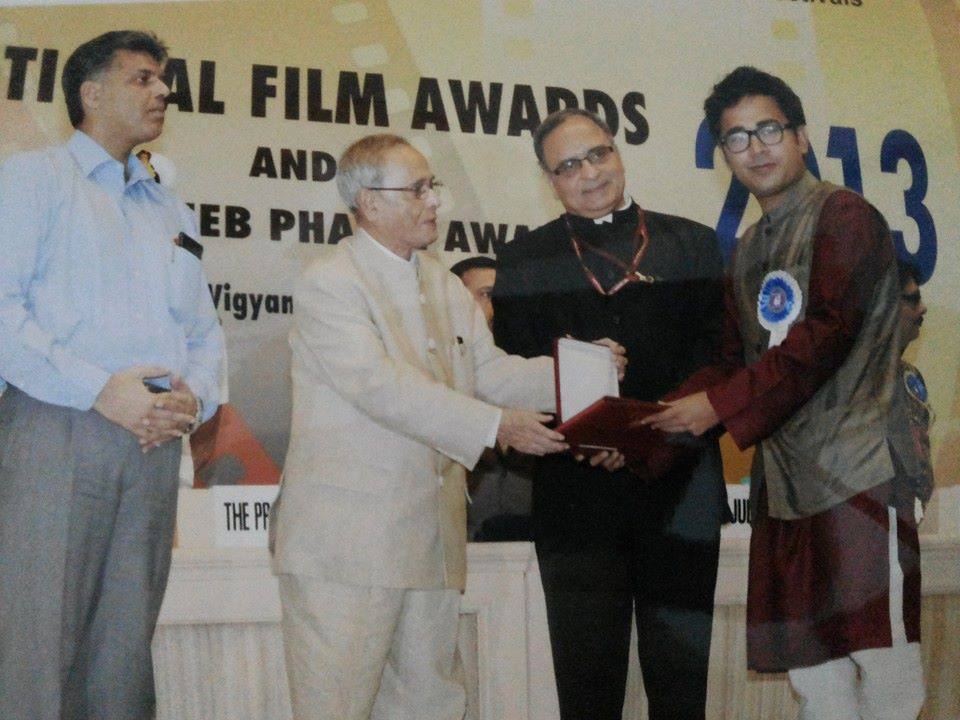
That is quite a new-age and honest work ethic for the Bombay entertainment industry, where ego precedes everything.
There is an on-going wave of well-crafted, enjoyable content that captures the new-age energy and thoughts. I mean just look at October’s releases that’s gotten people talking . There was a movie, Badhaai Ho, that spoke about a simple societal truth. People loved that; the response was a reaction to that truth. Then there was Andhadhun, a totally different film, a fantasy situation, not a situation that happens in real life. Then there was Tumbbad, a period horror film. What’s common between these films is that they were well made. The fundamentals were right. There is no set formula for their success: If it is well-made, you’ll earn the respect and support of audiences. And it’s not just cinema I’m talking about, the same applies to digital content. People are getting picky about what they consume.
What kind of experiences helped you develop the craft, the kind of film-making, you strive for?
I come from a family that was crazy about watching films. Film-viewing was an essential part of family life. I grew up in cities like Muzaffarpur and Bhubaneshwar. I’m talking about the late 80 and 90s – We’d watch everything from to Bollywood to American classics to DD Sunday specials that’d include the likes of Satyajit Ray. You could say film viewing was a childhood obsession. Exams getting over meant heading straight to the video library to rent out 6-7 films for the day. This was till I was 15-16. When I moved to Calcutta, I made a few friends at La Martiniere, people who were talking about making films with their small handi-cams. I guess that’s when I realised filmmaking wasn’t something that was completely out of my reach. A bunch of us would collect money to make documentaries. Those documentaries are thankfully no longer available and have been lost to the sands of time but what I did figure through this process of shooting a film and stitching it together is that it wasn’t impossible for someone from a normal middle-class upbringing to dream about making films.
By class 12th, I knew what I had to be. Till that point it was expected that I would become either and engineer or a doctor, but I was bitten by the film bug. My parents were bit shocked with this career path. There was no one in the family who was remotely involved in film-making. Their advice was “Go study if you want to make good films”. They were the ones who told me about FTII. But to reach FTII, I had to be a graduate. I did my graduation in mass communication from St. Xavier’s Calcutta. It is a course which is more film-oriented and less about journalism. That really helped: It was a mini FTII experience in itself. I made my first few films. For example, I am really proud of this one. I made it when I was all of 17. It was my first brush with storytelling.
Of course, going to FTII was another thing altogether. It is an institution that is larger than films. It makes you re-look your views about life. It makes you question your ideas about films and pushes you to make better films.
I ask this question often …What’s the use of an education in film, especially in a country when movies made for masses aren’t by trained professionals?
I will ask you one simple question, if you think you want to do something for the rest of your life, is it too much to spend a few years learning it? I don’t know why is there a wave against film schools in our industry. Nobody would like to ride a car over a bridge that wasn’t made by an educated civil engineer. I am not saying that one has to go to a film school to make films. But if you are at crossroads in life where you want to make films but don’t know where to start, my advice is to get educated. Learn the craft, it can only help in making better-crafted films.
Look at the American masters – Coppola, Scorsese, Spielberg, they have all learnt the form, and they make well-crafted films for the masses. Forget about them, what about Andhadhun ? The film speaks for Sriram Raghavan’s craft (He is an FTII alumnus). Is it worth going to film school? Yes, if you are passionate – film school is difficult, you get to put out your work and have it judged left, right and centre. But the good part is that you get most of the basic mistakes out of the way.
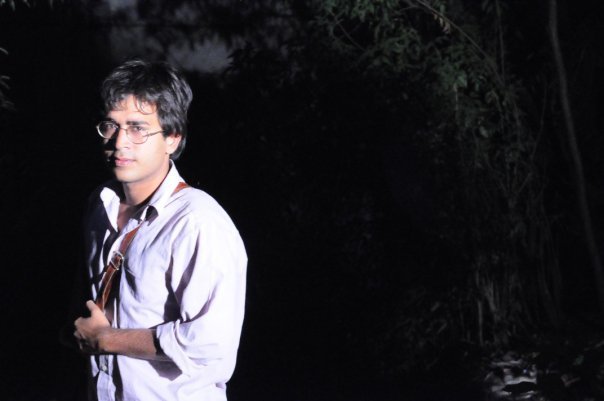
How was the FTII experience for you?
The first year was a daze. I mean you reach Jerusalem, the Promised Land, and you don’t know what to make of it. You meet people, you hang out on campus but things eventually become very difficult: a three-year diploma ends up taking five years. You end up making bad films, you get feedback from all quarters – your teachers, your peers – but most of all you judge your own work. It is an important exercise but it can totally break you. Film school does get your basics in place. Once you land in Bombay, no one will hire you to make mistakes. You get to try out different things so that you can eventually can make good films. You get to learn from your batch, there is this holistic growth, an ever-evolving worldview, that the film school environment bestows you with.
Mandrake, your FTII diploma film, fetched you the National Award for best short film fiction. How did you go about that?
Mandrake is the story of a Bihari migrant, Babu, who works in a prop shop in Bombay and finds an old silent film there, Mandrake! Mandrake!. The silent film depicts the adventure of Mandrake the magician, who uses his magic and saves the princess from the demon. As Babu watches this lost film, he realises that all the magical devices were locked in the same prop shop as him. Through the course of the night Babu brings out these magical props, figures the method behind the magic and eventually become a magician himself. Making Mandrake was one particularly tough given the resources we had. But the team squeezed every drop out of every last resource we had to give a certain scale to the project that it needed. The journey was difficult but eventually it all came together well.
What about the other film, 5 O’clock accidents, that earned you a special mention?
This film was commissioned by Nirmaan foundation, an organisation focused on raising awareness about CSA. In my research, I came across a few common factors in all the testimonies of victims of child sexual abuse. The feeling of constant fear and the need to communicate that fear in their own individual way. I took these two elements and concentrated on making a film that evoked the horror that a victim feels. Apart from it getting a special mention at the NA, this film is still being used by organisations in raising awareness about CSA. That makes me extremely happy.
You’ve also done some commercials. Do you see anything in it beyond work that pays the bills?
Yes, commercial filmmaking has taught me a lot about concise storytelling. Within 30-40 seconds, the story has to hit the mark. You cant’ be indulgent, kam se kam samay mein emotion invoke karna hai, and that’s something I have learn to implement in my other work.
To be a creator of good content, you probably consume a lot of good content.
Umm, I’m not sure. I absolutely love Rick and Morty, nothing has made me laugh so much in ages . If nothing else, it pulls me through a rough day. Then Stranger things and The Marvelous Mrs. Maisel are my other favourites. The problem with Amazon and Netflix is that you’ve to ration out time, or else you’ll get no work done. I currently can’t afford to spend too much time watching stuff with the schedules I have.
What are you working on next? Any more shorts or web-series in the offing?
I’m currently making a show for Balaji: a heist thriller I had written in FTII. I really like making shorts and I will if I have the resources and script available. There is certain purity in short film-making that I swear by. However, the dream has and will always remain: to make a feature film.

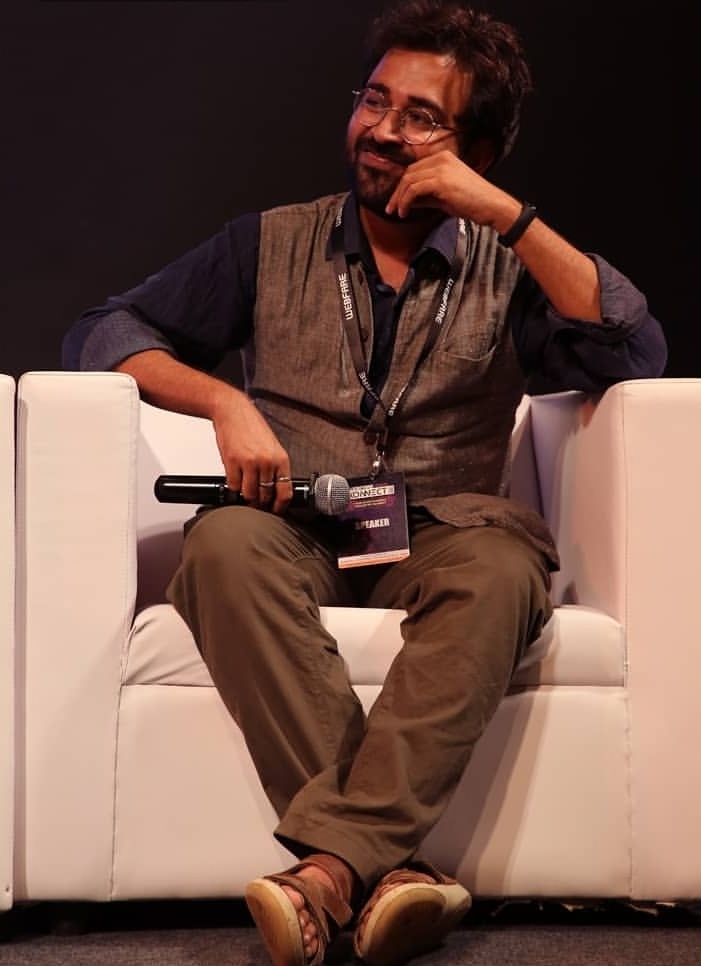

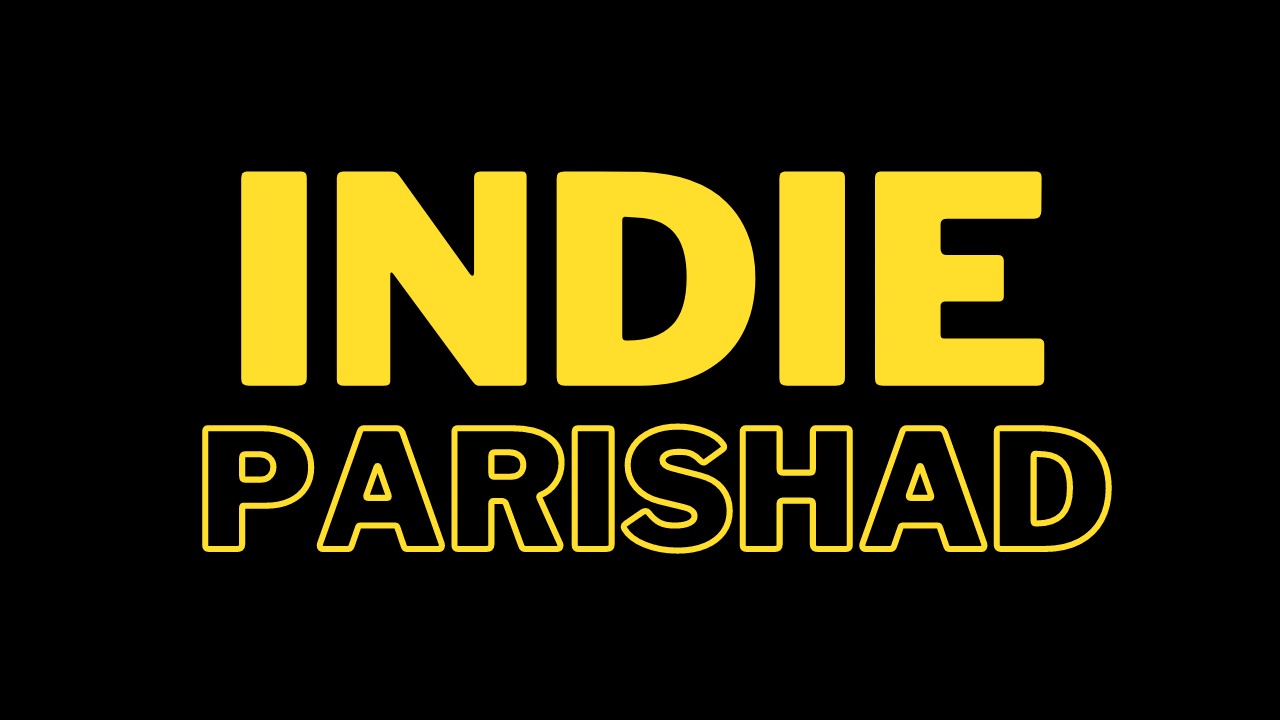
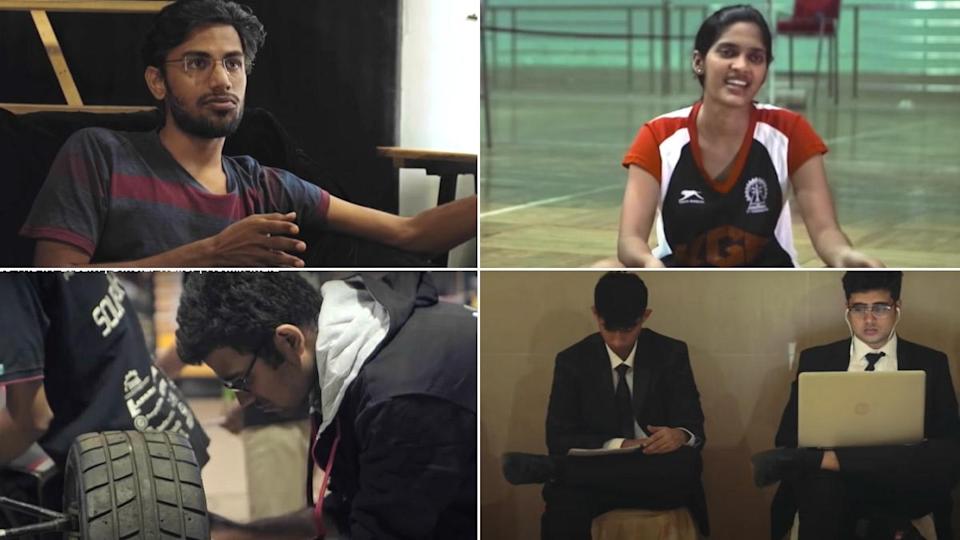
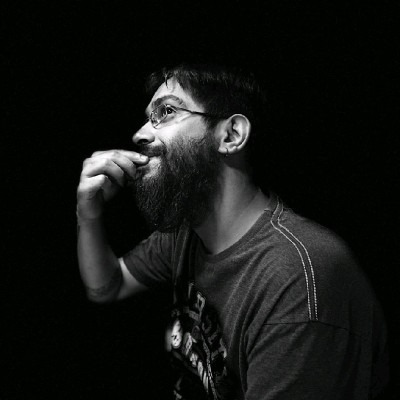



Leave A Comment
You must be logged in to post a comment.